How topdutch is building a digital society to accelerate innovation

When it comes to digitalization, we often talk about technologies. Technologies that make innovation go faster. Technologies that are changing the world as we know it. However, accelerating a digital future cannot happen without taking society into consideration. The roles of people, citizens, are often overlooked in the prospect of a digital future. In the TopDutch region, we’re all about people. We believe digitalization consists 90 percent of ‘people’ and only 10 percent of tech. Not the other way around. How does TopDutch take care of its people, when it comes to the modern, rapidly changing digital society?
What is digitalization?
The answer to that question can best be given by the TopDutch region’s (and the country's, for that matter) first ever independent CDO (Chief Digital Officer), Nick Stevens. A facilitator that brings together (various forms of) government, education institutes and businesses to embrace digital transformation and create new opportunities for all citizens in the region.
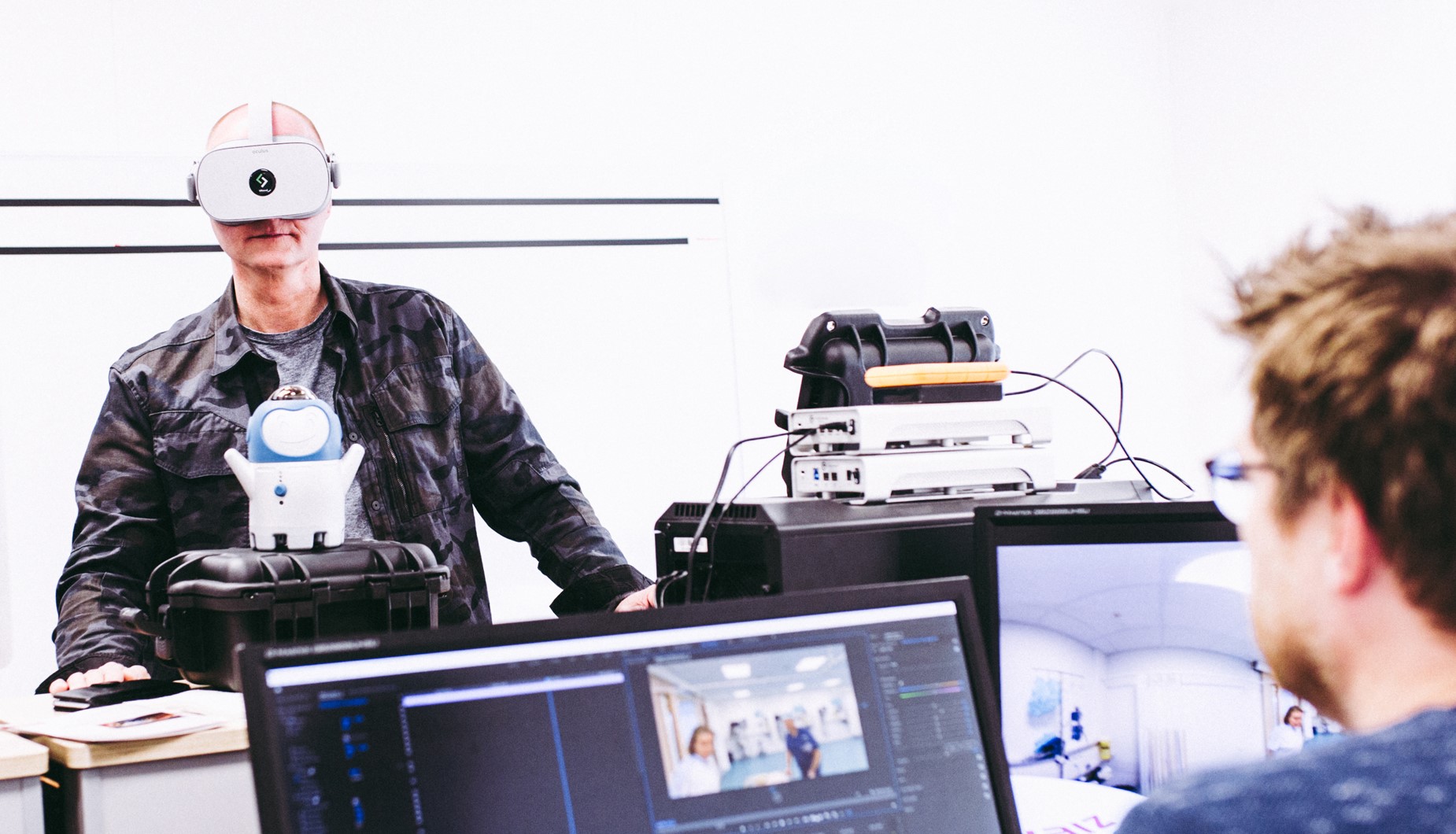
So, what is digitalization? ‘It is an enabling set of technologies and platforms, that touch everything in society as we know it today’, explains Stevens. For example, TopDutch is home to Lifelines, the biobank and an international resource for health research. ‘It is absolutely digital-first, but also healthcare-, patient-, and legislation-first. Digitalization is enabling Lifelines to happen. Its goal is not to be digital. The goal itself is to extend life’, says Stevens. What’s the point he’s trying to make? That digitalization provides us, people, with a set of tools. ‘What you want to get out of them, is what’s important.
Digitalization is not an industry in itself. It’s not a vertical, but a horizontal set of mechanisms that touch upon every aspect of life, work, business, education. Even upon every industry, as digital technology acts as a bridge between industries, enabling innovative crossovers. It also touches upon everyone, because whether we like it or not, digitalization cannot be stopped.
The region of digital literacy
TopDutch focuses on people in that digital world, because if we don’t, people will fall behind. We are well aware that falling behind seeps through into every aspect of society, from daily life to business and the economy. Therefore, we’ve become the region of digital literacy.
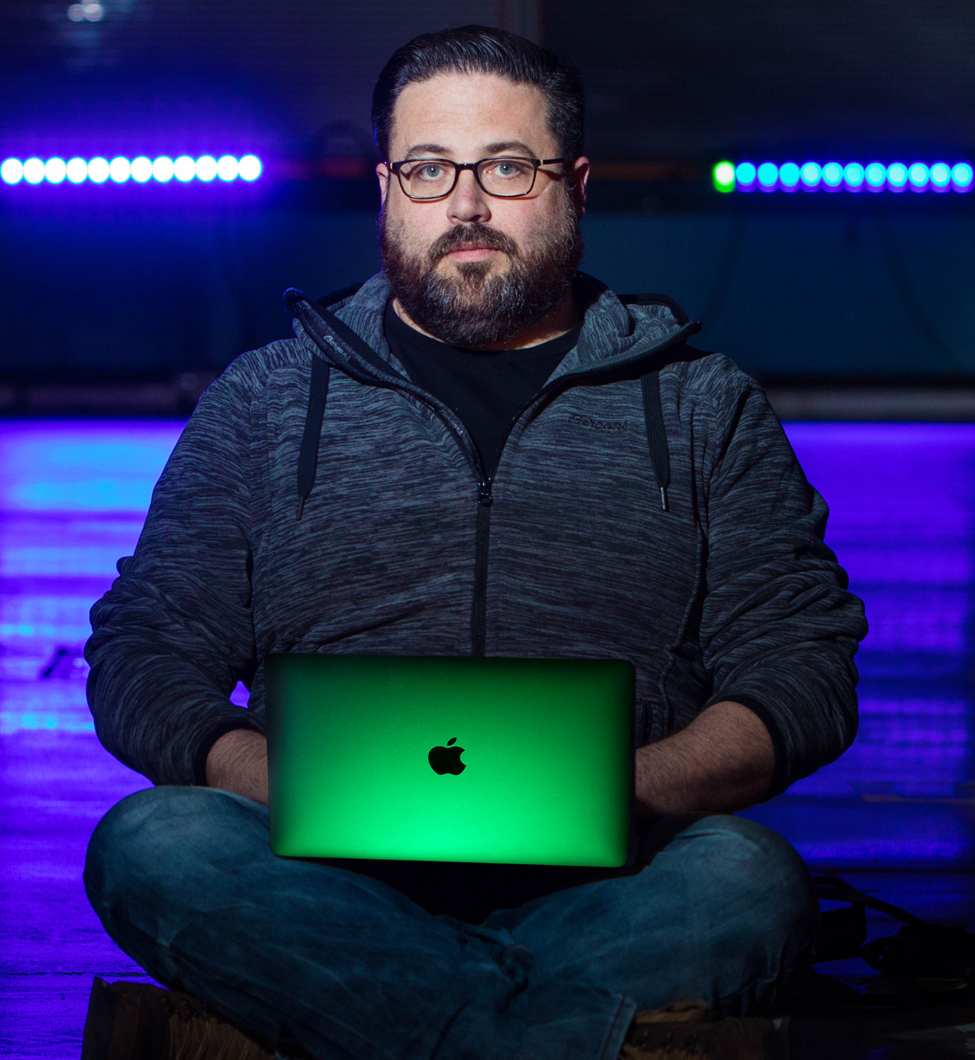
Stevens explains what that means: ‘The region is investing in people to provide them with (digital) skills that they don’t have yet. Jobless people, employed people who can do their existing jobs better with better skills, people whose jobs will disappear and can go into a new digital role, whether that exists today or not, or retraining people for jobs that do not exist yet. We are proactively investing in people.’
We do this not only to provide a future proof, digital workforce, but because we also recognize that digitally capable people are also digital consumers. They use digital products and services where they can find them. ‘Everyone who gets online and can use digital products and services better or safer, is a potential customer’, says Stevens. As well, governments are becoming more digital. How do we prepare citizens to participate in a digital democracy?
Accelerating digitalization across industries
The TopDutch region has a strong Digital Innovation ecosystem, with the large amounts of knowledge focused on high-performance computing, data science and deep learning drawing in big high-tech companies such as Google and IBM. However, the need for digital skills are not limited solely to tech firms, and the region is committed to building an ecosystem that accelerates digitalization across all industries.
‘Name me one company that doesn’t need cyber security, or digitally skilled people’ questions Nick Stevens. Companies cannot exist in a vacuum today. They need an ecosystem around them. Especially in a digitalized world, where the cycles of change are continuously accelerating. Take a look at the AgriFood, or Logistics industries, for example. In the digital world more and more focus is on building applications, such as sensor technologies or AI for smart factories. But we also need digitally literate farmers or warehouse employees, who can operate such technologies.
Name me one company that doesn’t need cyber security, or digitally skilled people.
Nick Stevens, first ever independent CDO (Chief Digital Officer)
For that reason, the TopDutch region focuses on creating triple helix cooperation, where business, government and knowledge institutions can work together to facilitate, share knowledge and educate TopDutch citizens for the real digital skills they need now, and will need in the future. What support an individual or a company accesses depends on what their specific needs are. ‘In the TopDutch region, we have an awful lot of digital incentives and related matters. And it’s easy to get in touch with an organization that can provide you with what you need.’
Why is the help to accelerate digitalization in the TopDutch region so readily available? ‘Because of willingness, but not from an altruistic motivation’ explains Stevens. ‘We understand it’s good business. Our government sees the necessity of a digitally skilled society. Our universities need actual, real life cases to research. Companies need research done as well as graduates and employees that can work in the realities of today and tomorrow. It’s no longer a customer-supplier relationship. Government, businesses and educational institutes work together; quickly, easily and without stress. And we have dedicated, proactive facilitation groups, such as the Digital Office, the Digital Literacy Coalition, the Cyber Safety Coalition and the NOM. All focused on stimulation and facilitation of working together. That’s important to companies’ successes.’
Plenty of examples
The TopDutch region is home to a multitude of initiatives that enable a strong, skilled digital society. To give you an idea of what’s happening, here are a number of them in depth.
Digital Literacy Coalition
The Digital Literacy Coalition focuses on the human side of digitalization: Digital literacy in its broadest form. The coalition wants to make TopDutch the most literate region of the Netherlands by 2025. How? By bringing partners from different ecosystems together to join forces, says its chair, professor Marcel Broersma from the University of Groningen.
‘We made a number of observations: That digital literacy, or a lack of it, is a common denominator throughout society and sectors. It is at the bottom in terms of educational level, but also at the top. It runs through all ages. It is relevant in all sectors. So, digital literacy is becoming increasingly important for people. If everyone improves in this area, you'll unlock a lot of potential in society. From an economic point of view, the working population is better equipped. And it has a social component, because it creates digital inclusion. Society is becoming more and more digital, as is the government, so it’s important that people are able to participate and that no citizens are excluded.’

The coalition brings parties together that are already working on increasing digital literacy, from educational institutes to local entrepreneurs. ‘It's great that we can link concrete projects to research to provide a better basis. As well, we can start new projects much more easily’, explains professor Broersma. The collaboration is quite unique, he says. ‘The TopDutch region has the perfect scale for this. It has everything and is big enough, but not too big. Important sectors are well developed here. We are at the forefront of IT and educational innovation. Knowledge institutions and governments know where to find each other quickly. Everyone sees the importance of it for the infrastructure to work together. That's quite unique, that you can change gear so quickly.’
And the TopDutch efforts do not remain unnoticed in the rest of the country. ‘We are also a testing ground for digital inclusion, in a living lab, commissioned by the Ministry of the Interior. How do we ensure that people can continue to participate in democracy? We have a great environment to do projects like this’, concludes Broersma.
Cyber Safety Coalition
The TopDutch Cyber Safety Coalition wants to make civilians, public servants and the large number of SMEs in the region aware of the possible dangers of digitalization and how to arm themselves against them, in an accessible way. ‘We’re bringing different initiatives together that focus on cyber safety’, explains former chair Else Maria van der Meulen, who took part in founding the coalition.
Safety goes beyond a password. ‘We have to set behavioural change in motion' says van der Meulen. Being critical of abnormal behaviour, as we are in real life. In the region, we’re at the forefront of awareness. But, we're still a long way from being there.’
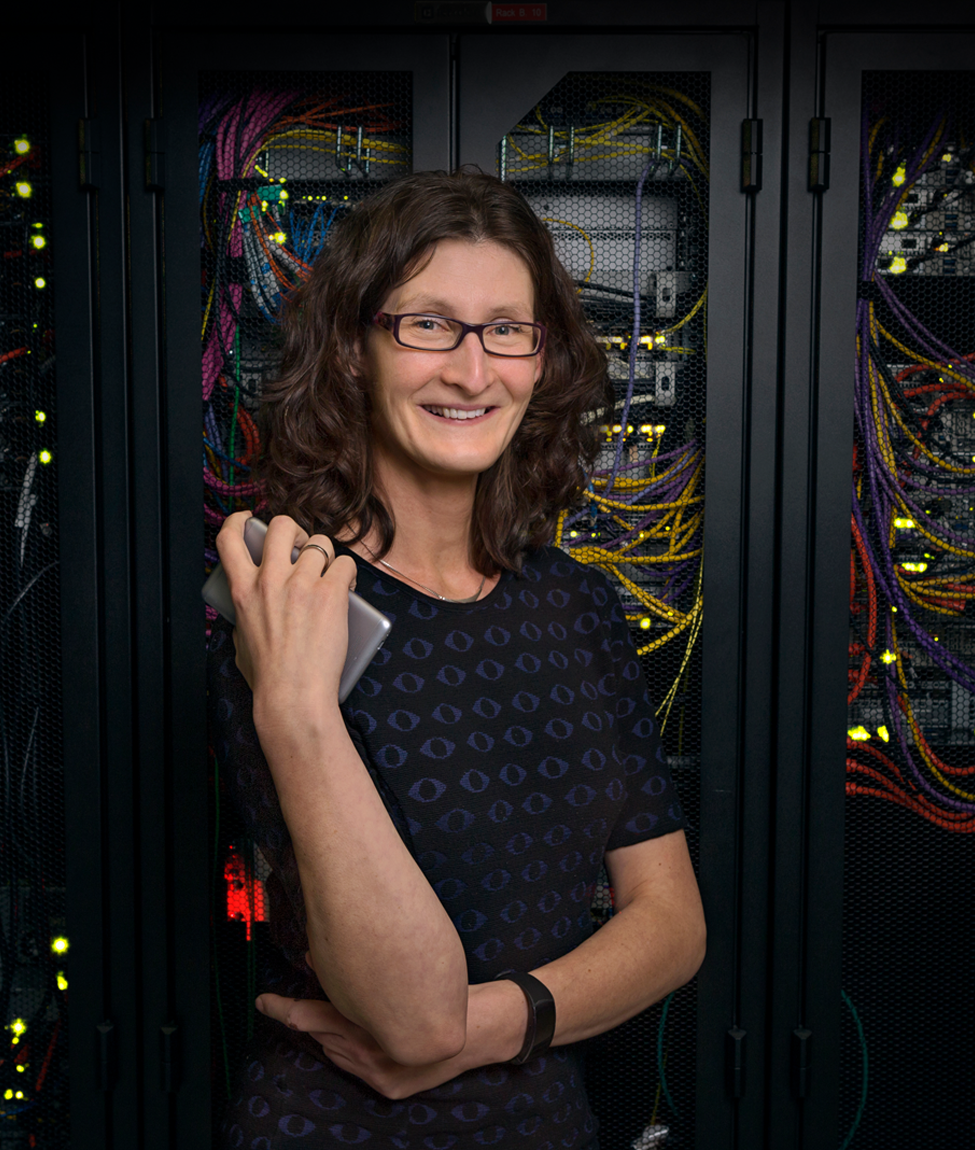
One of the practical examples of the Cyber Safety Coalition is the continuous Cyber Safety learning line, with a chair at the University of Groningen, a lectorate at the Hanze University of Applied Sciences and a practorate at various vocational colleges in the TopDutch region, including Noorderpoort, Alfa College and Friese Poort.
As well, the coalition helps those that fall outside the ‘normal’ systems. But not in a way you would’ve expected. Van der Meulen continues ‘For example with our HackLabs: we try to give young people who get stuck in the normal school system, but do have skills in the field of cyber security, space to develop their skills in a different way. We also tell them that they can make good use of these skills and that turn them into earning a living as ethical hackers, as at HackerOne. That gives so much satisfaction. Everywhere these youngsters get the door slammed in their faces and they hear that they do not fit the needs. Our way, we give them confidence. That makes me truly happy.’
We have to set behavioral change in motion. Being critical of abnormal behavior, as we are in real life. In the region, we’re at the forefront of awareness.
Else Maria van der Meulen, chair at the University of Groningen
Again, it’s about bringing together what’s already been started, strengthen initiatives and building ecosystems by working together. ‘Because of the short lines in the region, everyone knows where to find anyone quickly. We would rather learn from each other here than see each other as competitors. Alone you go faster, but together you get more. If you dare to share, as we do in the TopDutch region, you get more back. We've done things together here so many times: it's in our DNA’, explains Van der Meulen.
Digital Office
The Digital Office was created to facilitate digital transformation in the TopDutch region. After independent Chief Digital Officer Nick Stevens had laid the groundwork, a delegation of the triple helix (government, education and business) took over to map out and strengthen all the initiatives around digital transformation.
Jeroen Bos, entrepreneur and one of the founders of the Tech-savvy program (scroll down for more info on that) is one of its current team members. ‘We want to bring together initiatives and function as an advisor to our governments, for example. If we look at the digital transformation, it can be carried even more widely. There is a lot of talk about 90% technology and 10% people. But it's the other way around. In the TopDutch region, we make a difference because we focus on human skills to make the digital transformation a success.’
Why the focus on people, according to Bos? ‘Historically, we are not the region of the technical manufacturing industry. However, we do have a strong people-powered ecosystem and we're a real educational region. That gives the potential to educate the workforce of the future. And the current workforce that needs to transform, too.’
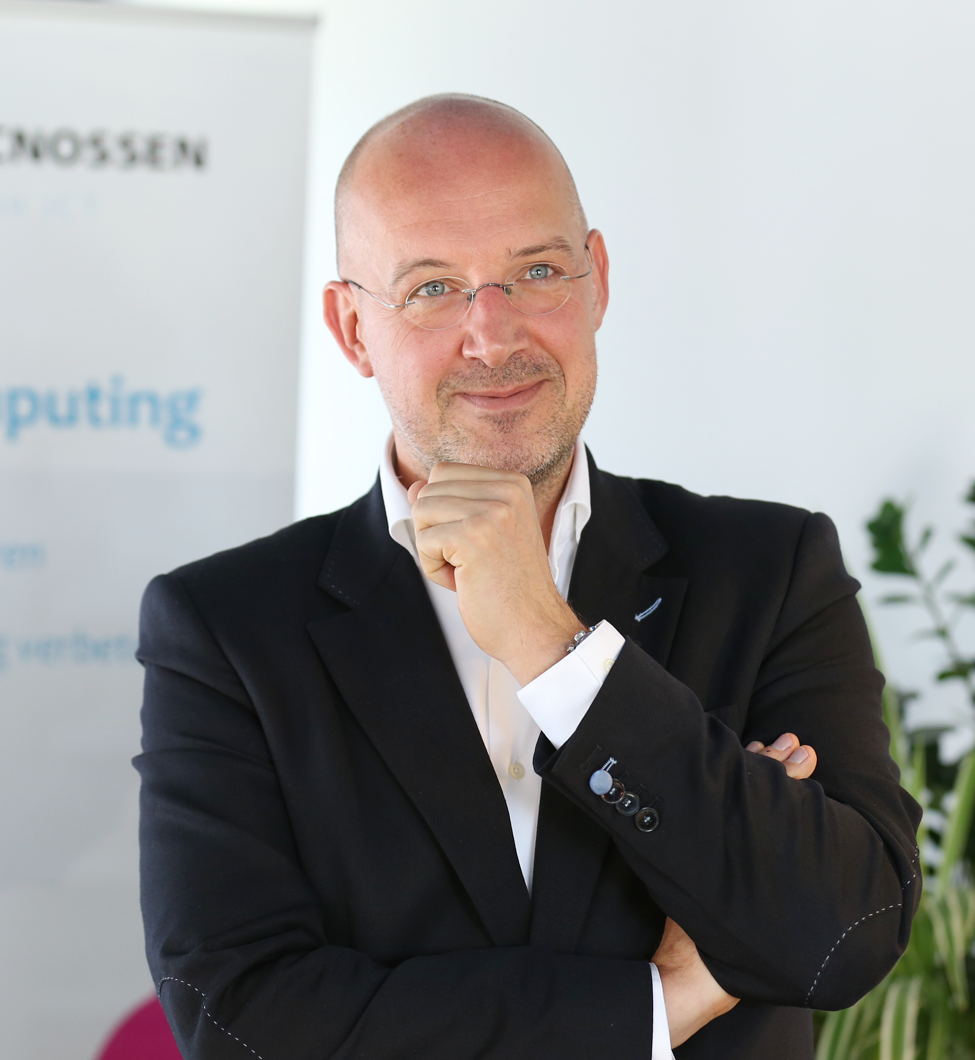
Samenwerking Noord
Samenwerking Noord is the IT-network organization of the TopDutch region. Another example of how well we work together. ‘On every level, people can find each other. Everyone is approachable, from our government deputies to entrepreneurs’, says Fred Hassert, Samenwerking Noord’s chair. ‘Even technology company IBM, that has an office in the region, was surprised by our accessible network.’

His and Samenwerking Noord’s goal is to develop an ecosystem where digitally skilled talents can keep growing, by working at the region’s diverse range of (IT-)companies. ‘Here, these ecosystems are created by society, not by big institutions. With a little help from the government, occasionally. Like the IT Academy Noord-Nederland, for example (see below, red.). That’s really unique.’
The offer of the TopDutch region when it comes to the digital society and digital transformation, has not remained unnoticed. ‘We’re hosting the second, prestigious Dutch Digital Top, in March, 2020. A big thing!’, claims Hassert. At the conference, the national government, entrepreneurs, researchers, civil society organisations and other governments work together on the objective of making the Netherlands the European digital leader, by responding more quickly to the rapid pace at which society and the economy are digitizing. ‘Plus, it’s a great showcase for the region, to show the rest of the world what we’re working on.’
University of Groningen: Groningen Digital Business Center
Society will never be the same again, due to digitalization. Bas Baalmans, Managing Director of Groningen Digital Business Center (GDBC) of the University of Groningen, knows it all too well. ‘For example, you can ask yourself out loud whether current functions will still be available in the future. Digitilization has a huge impact on society. That's okay, because it offers opportunities. However, we need to be aware of the skills and knowledge we need, so that society can deal with it. The University of Groningen has in-house knowledge that we are happy to make available, bundle and combine with practice.’
GDBC responds to the demands for academically trained, digital experts. Next to the making its research capabilities available, it also develops digital training opportunities for TopDutch talents that attend our University of Groningen based on market demands. Students do research and internships at prominent digital companies and in return, digital entrepreneurs benefit from the academic knowledge and research outcomes.
‘Besides the triple helix working together really well, the individual educational institutions at different levels are also working together and have created an integrated digital learning line, in which all levels of education are interlinked’, says Baalmans. ‘We think it's normal, but it isn't elsewhere. We have structural contacts with all the players in the region: entrepreneurs, government and educational institutes.’
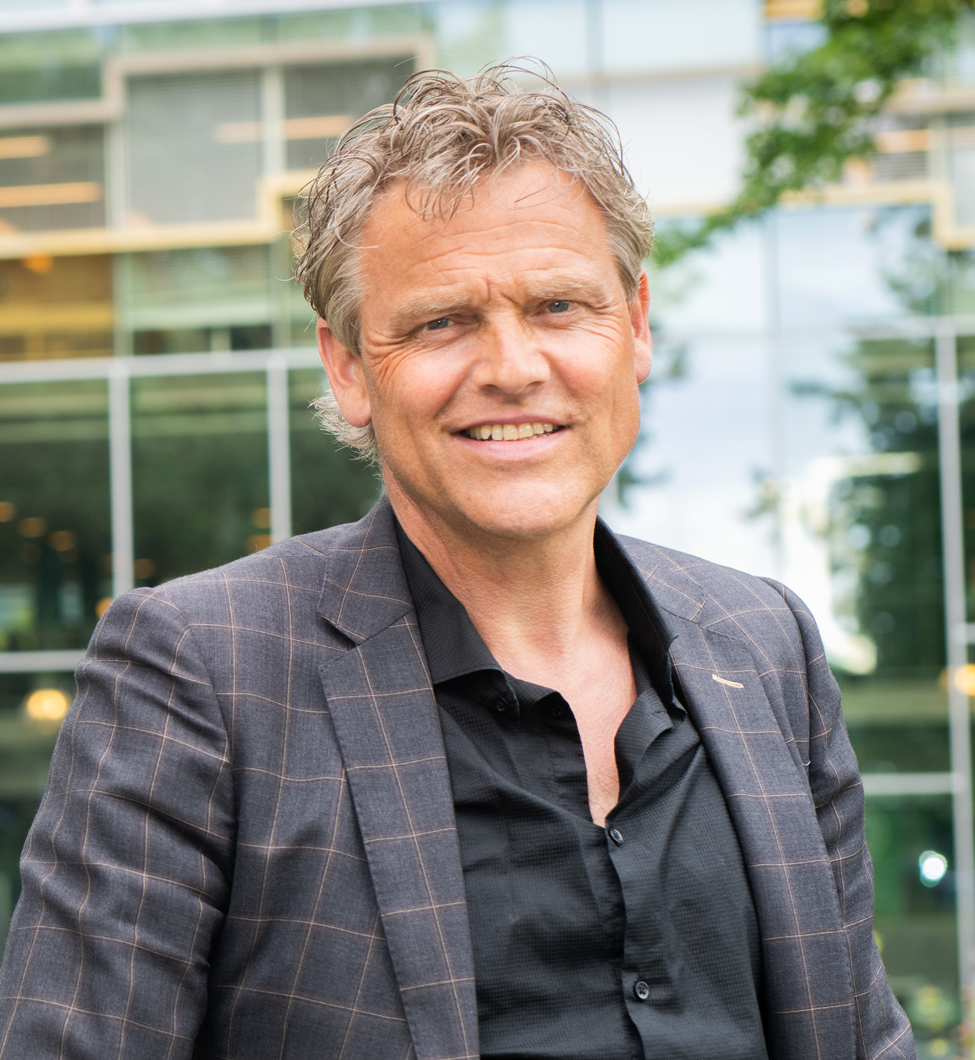
Hanze University of Applied Sciences: Digital Society Hub and IT Academy Noord-Nederland
In the Digital Society Hub, the innovation workspace, students, researchers and entrepreneurs work together on (developing applications for) the latest technologies. Multidisciplinary teams tackle topics such as e-health, 5G and Big Data, in which students and researchers bring academic knowledge and entrepreneurs add their market knowledge.
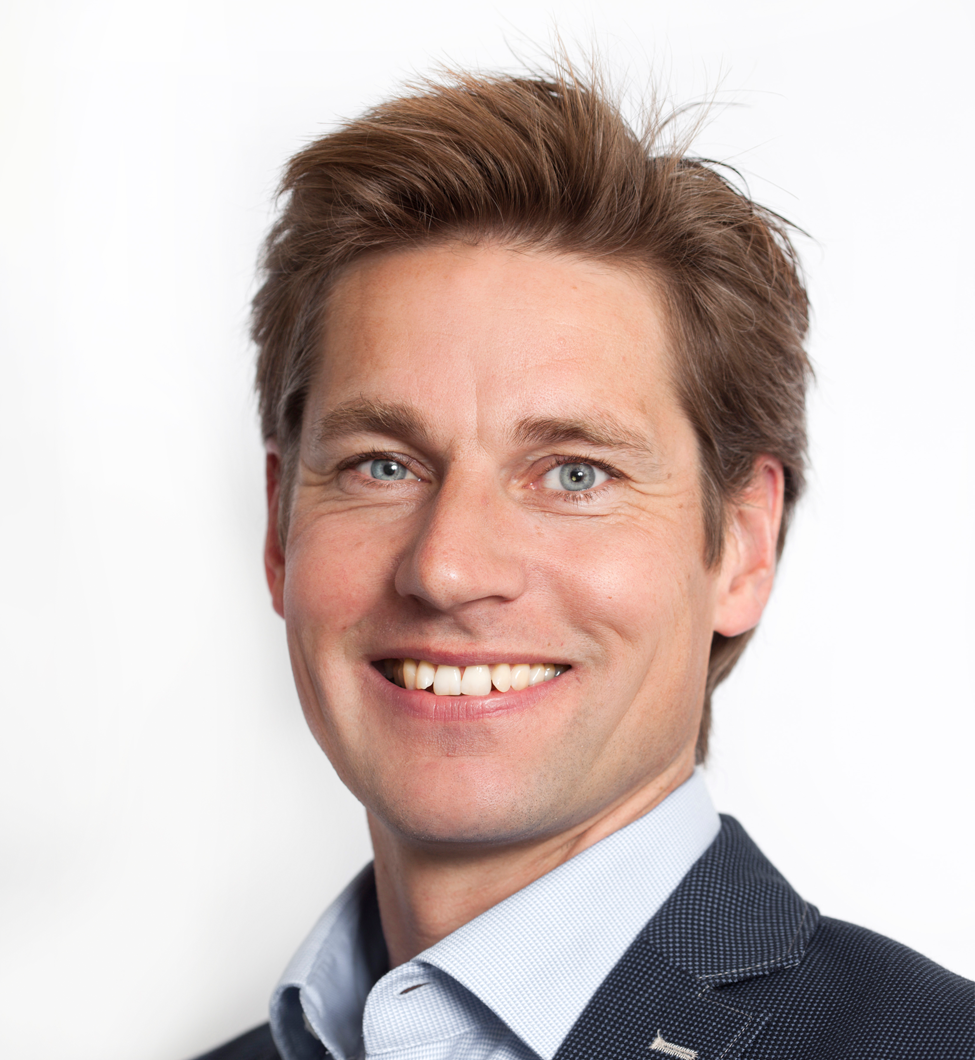
As well, the Hanze University of Applied Sciences is home to the IT Academy Noord-Nederland. ‘The very birth of the IT Academy Noord-Nederland shows the strength of the TopDutch region once more: it has been a public-private partnership from the beginning, between education and business’, says its managing director Robin van den Berg.
The raison d'être is already a little in IT Academy’s name. ‘There will be a shortage of IT-knowledge and skilled workers in the near future, so in the TopDutch region we figured that we had to do something about it. Developments in IT follow each other so quickly that it’s no longer a choice to continuously educate, but a necessity. This prevents people from falling behind’, explains Van den Berg. ‘Besides, IT specialists work in every type of company nowadays, not just in big IT companies.’
Developments in IT follow each other so quickly that it’s no longer a choice to continuously educate, but a necessity.
Robin van den Berg, managing director IT Academy Noord-Nederland
Companies in the TopDutch region feed the IT Academy Noord-Nederland with needs. 'Where do they see developments heading? We tune in to that,' says Van den Berg. 'This enables us to offer an up-to-date range of training courses for people who need further education'. The up-to-date knowledge about companies is not only used to update the IT Academy's own curriculum, but also to ensure the education provided to IT students of the Hanze University of Applied Sciences better fits the needs of the businesses in the TopDutch region. ‘The IT Academy acts as the bridge between education on the one hand and the business community on the other, where both parties can profit from each other’, concludes Van den Berg. Our up-to-date knowledge about companies is not only used to update the IT Academy's own curriculum, but also to ensure the education provided to IT students of the Hanze University of Applied Sciences better fits the needs of the businesses that are part of the Top Dutch Region. Effectively, the IT Academy acts as the bridge between education on the one hand and the business community on the other where both parties can profit from each other.
Noorderpoort: Werkplaats Digitaal Vakmanschap ‘Het Kasteel’
At the Werkplaats voor Digitaal Vakmanschap - workshop for digital craftmanship in English - Noorderpoort, an institution for vocational education, offers their students a space where they can learn something from the profits of digital techniques for their craftsmanship.
‘Whether it is administrative or technical: digitalization takes place in each and every study we have to offer’, says Wim van de Pol, board member of Noorderpoort. ‘We're working with small and medium-sized businesses on this. They also - fully understandably - cooperate out of self-interest, because they gain insight into students, can exert influence and it offers them R&D facilities.’
To make this a bit more concrete, Van de Pol gives an example. ‘In the TopDutch region, some of our busses already use hydrogen for fuel, as a pilot. But how do we teach trainee-mechanics to work with the technology - that’s not mainstream yet - so we can prepare them for the future? While these students were given live education on a hydrogen bus, our media students shot VR footage. Our IT students, subsequently, are building a digital VR-module to train our automotive students on hydrogen busses, without having to work on an actual bus. Through digitalization, these students have gained experience modern techniques that aren’t widely available yet.‘

‘We can rightly say we’re at the forefront of modern day education’, says Van de Pol. Nowhere in the Netherlands is the intermediate vocational education so equipped for the changing digital society. ‘The health of the ecosystem here is bigger than anywhere else, due to the willingness to work together. We understand the common interest.’
Elementary schools: Basicly and Tech-savvy
In the TopDutch region, we believe one can’t start early enough to become digitally literate. So don’t worry about your kids: we’ve got them covered, too. We’re home to the Tech-savvy project by Bossers & Cossen, IT-development company from the region. It aims to get 5,000 teachers in the TopDutch region one level up when it comes to their digital literacy skills.
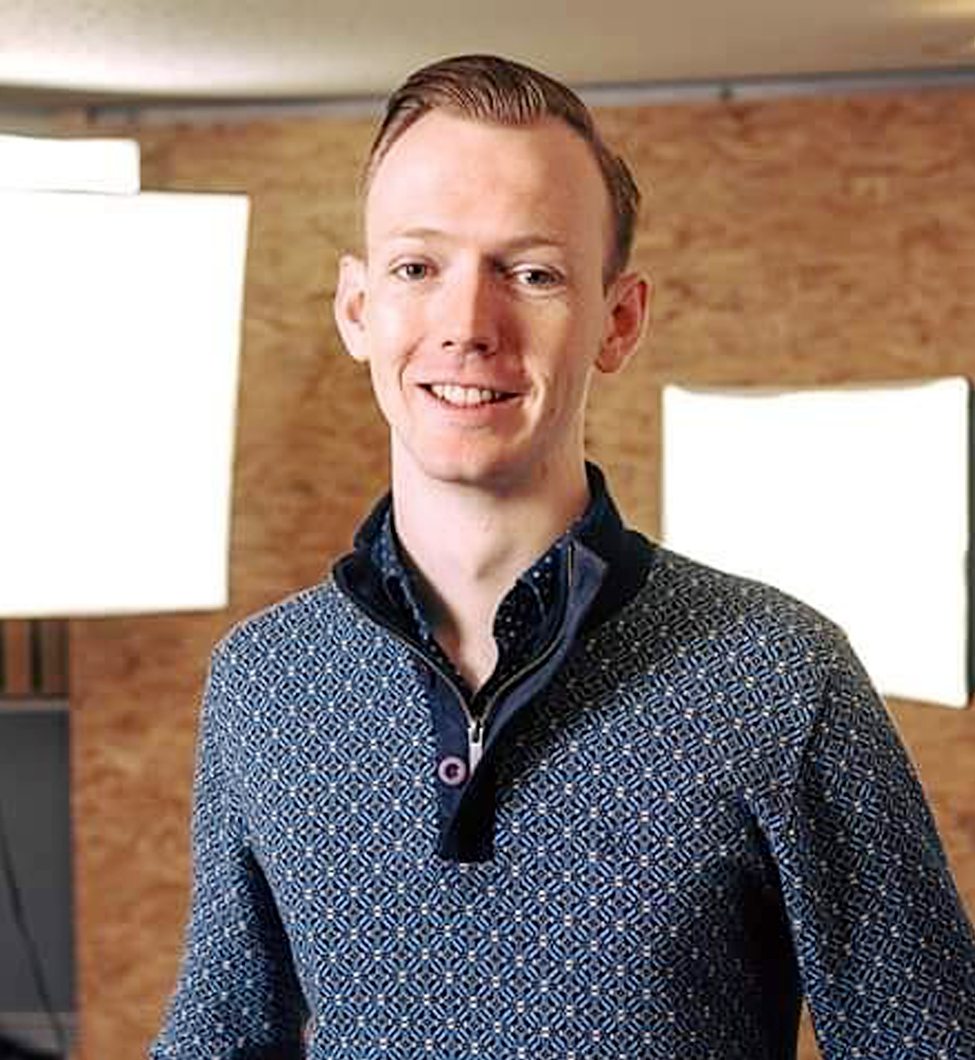
And Basicly, for instance, helps every primary and secondary school teacher to make digital literacy part of their education. From ages 4 to 18: by Basicly’s trained teachers prepare kids in the TopDutch region for a digital future. ‘That makes the potential of our future workforce tremendous’, says Basicly’s co-founder Vincent Veenbrink.
Yes, the cycle of change goes faster and faster. But whether new technologies appear increasingly faster, isn’t relevant, says Veenbrink. ‘The moment that someone’s able to understand how things work, develop adaptive capacity and deal with change, it doesn't matter if society changes quickly or not. Digital skills are important, but much more important is that you have to teach people how to learn. The incentive to keep learning. And to adapt. Certain routines change. How do we deal with that? Technology can help to make processes easier, better or cheaper. But in the end, it starts with people.’
Digital skills are important, but much more important is that you have to teach people how to learn.
Vincent Veenbrink, co-founder Basicly
Yes, that should start young. But not only the future workforce needs to develop that adaptive capacity. ‘We’re doing really well, in my opinion. We’ve organized it well through all levels of society. For the future workforce and the future unemployed. For people of every age, there are initiatives to take care of them. This is also the result of cooperation. Things are arranged quickly in the TopDutch region. We are open to working together and know where to find each other. TopDutch is based on its own strength.’
CONTACT
Join TopDutch
So what will be your next move? How will your company lead the digital transformation? Contact our network of knowledge-intensive institutions and innovative and entrepreneurial companies. You’ll soon see for yourself how quickly things get done here in the Northern Netherlands.
TopDutch Digital Innovation Package
Get your hands on:
- Unlimited access toTopDutch Digital Innovation articles
- The most exclusive investment updates, industry insights and key stories from our key industries
- Invites to exclusive international industry events and meet-ups
"*" indicates required fields
